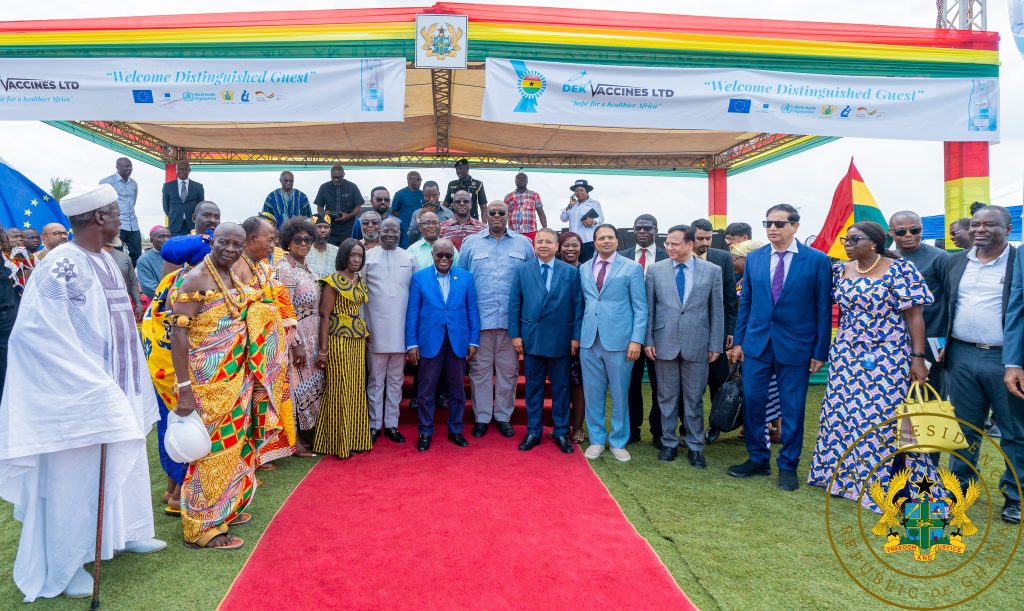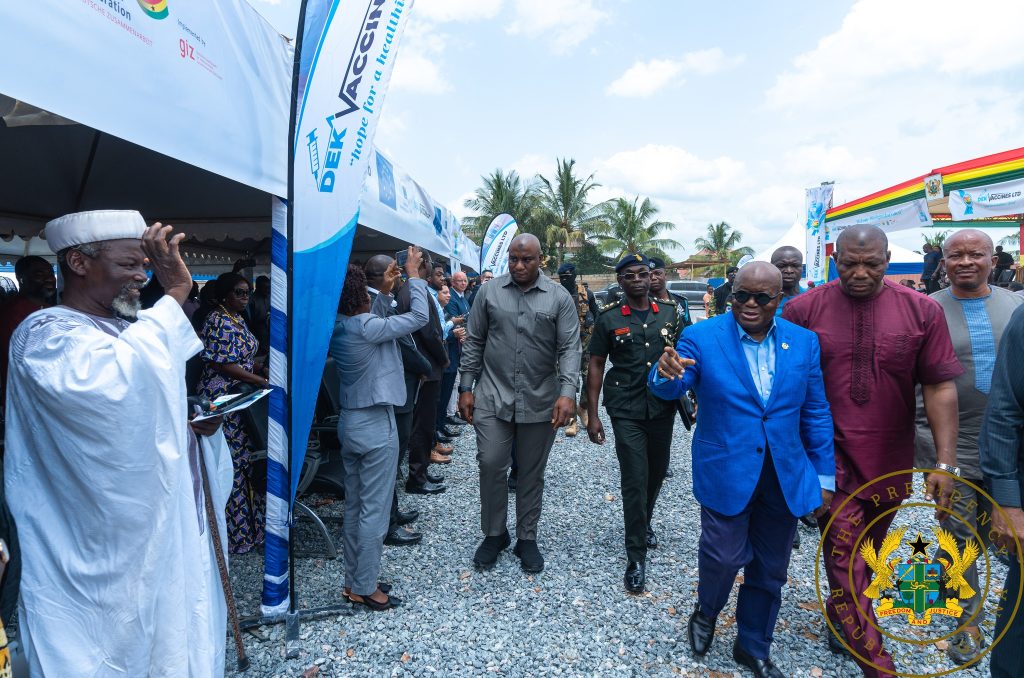By Stephen Asante
Accra, April 18, GNA – President Nana Addo Dankwa Akufo-Addo, on Tuesday, cut the sod for the construction of the DEK Vaccine Manufacturing Factory at Medie-Kotoku, in the Greater Accra Region.
The project, on completion, will build the country’s capacity to manufacture 600 million doses of vaccines annually.
These include vaccines for malaria, pneumonia, rotavirus and cholera, with the full value chain.
The project is spearheaded by the DEK Vaccines Limited, a private sector-led consortium of Ghanaian pharmaceutical companies.
The ground-breaking ceremony comes in the wake of the recent signing of a five million Euros grant agreement between the European Union (EU) and the consortium.

President Nana Akufo-Addo said the COVID-19 pandemic had taught the country, and Africa in general, the need to take the requisite measures in developing health infrastructure to an appreciable standard.
Therefore, the Government was committed to working with its development partners and other countries on the continent, including Rwanda and Senegal, to bring to fruition the vision of developing and manufacturing vaccines locally.
President Nana Akufo-Addo said the continent should work assiduously to ensure that: “Never again shall we be pawns of the global vaccine manufacturing order.”
The EU estimates that about 90 per cent of vaccines used by African countries are imported.
Ghana is, consequently, teaming up with Rwanda and Senegal to boost the development and manufacturing of vaccines in order to reduce sub-Sahara Africa’s over-dependence on vaccine importation.
Beginning with Fill and Finish, the DEK Vaccines Factory aims to eventually incorporate vaccine manufacturing and production, with a plan to construct a total of four Fill and Finish lines that can fill any type of vaccine.
Using state-of-the-art technology, the Fill and Finish facility will have the capacity to fill both messenger ribonucleic (mRNA) and traditional vaccines.

President Nana Akufo-Addo lauded the EU for its support in assisting the country to strengthen its capacity to manufacture vaccines locally.
Ghana, he said, would continue to liaise with the Union to address its health challenges.
Mr. Irchad Razaaly, the EU Ambassador to Ghana, decried Africa’s over-dependence on imported vaccines to cater for its health needs.
The EU, he said, was determined to support the continent financially and technically in order to change that narrative, stressing that the Union would continue to engage leaders on the continent on ways in finding measures to boost the continent’s ability to manufacture its own vaccines.
Dr. Kofi Nsiah-Poku, Managing Director of DEK Vaccines Limited, noted that the project carried both direct and indirect socio-economic benefits, as the adoption and maintenance of reliable health security infrastructure served as the foundation for sustainable economic growth.
GNA